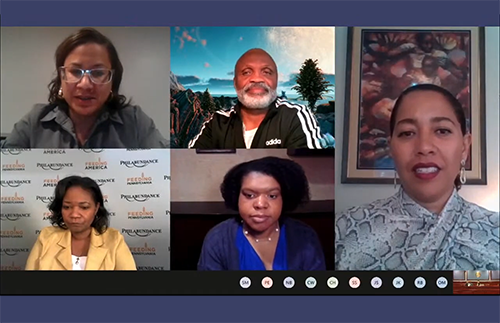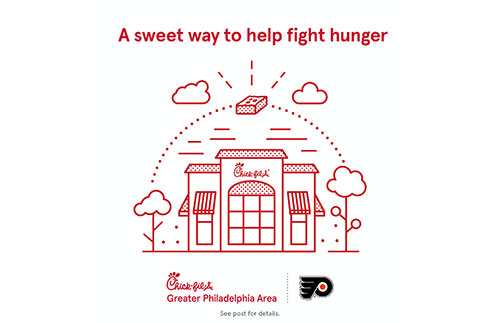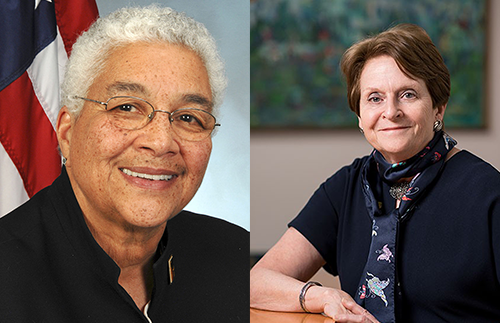On March 11, Philabundance CEO Loree Jones participated in a roundtable discussion on COVID-19’s impact on communities of color, co-hosted by the PA House Democratic Policy Committee and PA Legislative Black Caucus.
The virtual event, which took place exactly a year after the World Health Organization declared the virus a global pandemic, included researchers, frontline medical professionals, and nonprofit leaders. It provided advocates an opportunity to reflect on lessons learned over the past year, inform policymakers on racial disparities exposed and exacerbated by the pandemic, and offer recommendations for a more equitable path forward. The discussion covered healthcare, housing, education, criminal justice, poverty, and food insecurity.
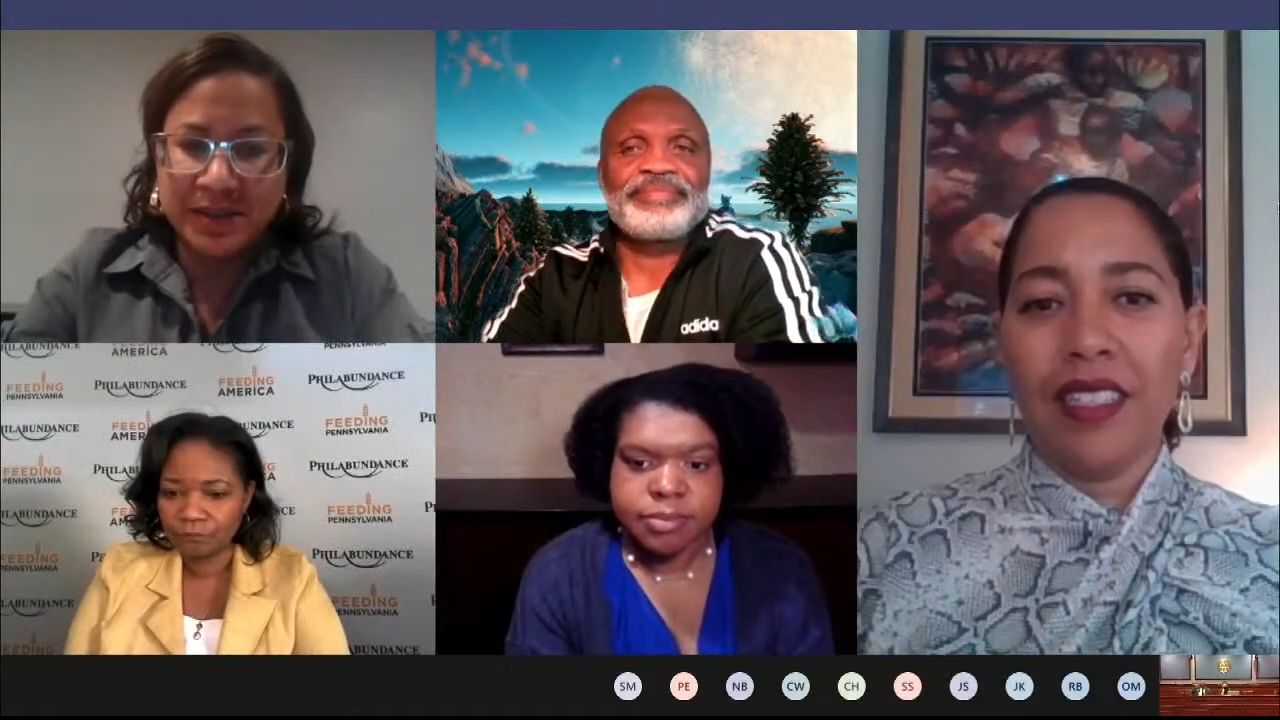
In her presentation, Loree spoke primarily about food access. “Philabundance has seen firsthand how the need for emergency food has grown during the pandemic, with hunger continuing to disproportionately afflict people of color in our service area and across the country,” Loree remarked. “COVID-19 did not create, but rather exposed at heightened levels, the inequities we can see so clearly today. Structural racism is the foundation on which many of our country’s policies and programs were built.” This reality is reflected in the current rates of food insecurity. Nationally, nearly 4 in 10 Black households with children are struggling to feed their families during the COVID-19 pandemic, nearly double the number of white households with children.
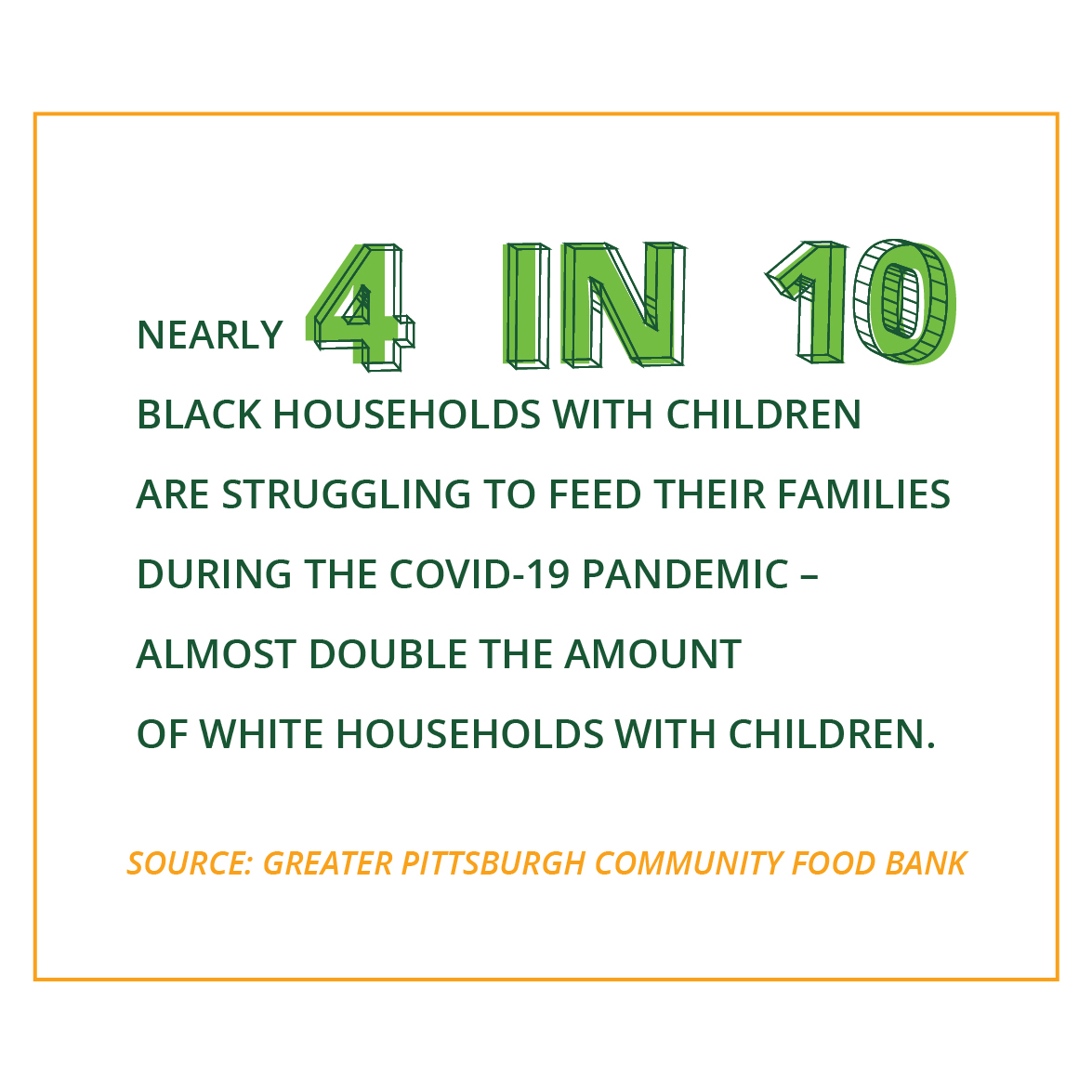
In Pennsylvania, over 1.4 million people faced food insecurity during 2018, before the pandemic, nearly 11 percent of residents. For decades, research has shown that households headed by people of color face hunger at higher rates than white households. In recent months, food insecurity has risen dramatically throughout the entire state. Rates of food insecurity range from a high of 21.8 percent in Philadelphia to a low of 9.8 percent in Chester County.
“Access to nutritious food is critical for the health of every person, which is why healthy food access is a social determinant of health,” Loree said. “As food insecurity increases, we know it is also often combined with a decline in overall health. For babies and young children, a lack of nutrition can lead to delays in body and brain development that have lifelong impacts. As children get older, not having a balanced breakfast or lunch can lead to an inability to focus in school, health consequences, and even an increase in suicidal ideation. Older adults who are food insecure have a greater likelihood of depression, diabetes, hypertension, and overall report being in poor or fair health. As hunger impacts people of color more often than white people, it is not hard to see how this cycle continues to disproportionally impact people of color.”
To make a difference, Loree told legislators that they must work to create an antiracist, equitable, and inclusive recovery plan that targets aid to those most in need and extends to all people. She provided policy recommendations including calls to prioritize funding for nutrition programs, draw down maximum federal funds, invest in workforce development, and address the root causes of hunger. And she expressed the “hope that we can all commit to working together – non-profit, private entities, government, and individuals – to do the hard work, to bring together diverse groups, collaborate, and come up with big ideas to move Pennsylvania to a brighter future for all of its residents.”
Watch the full hearing below. You can read Loree’s full written testimony here which includes all policy recommendations.

